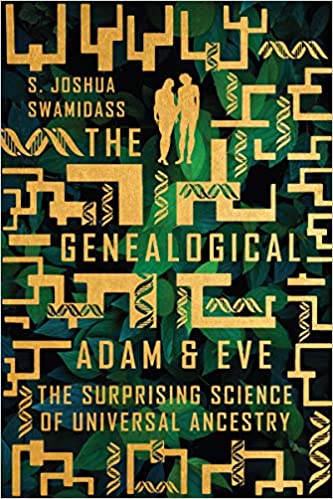Q. Let’s talk about interbreeding between Adamites and those outside the garden for a moment. You seem to assume that over time, this interbreeding is so vast and successful that by the time we get to 1 A.D. all those outside the garden who didn’t interbreed but kept to themselves died out, or am I misreading your argument? Please clarify. And speaking of interbreeding, the majority opinion not only among Biblical scholars but also apparently in the eyes of the author of Jude and 2 Peter 2 is that we are talking about naughty angels cross-breeding with human women. In other words, that event which produces the Nephilim is not about two groups of humans inter-breeding. I’ve shown in detail the connection of Gen. 6 with later reflections on that story in Jude and 2 Pet. 2 and one can probably include 1 Pet. 3 which refers to spirits in prison (again not likely humans) and notice where Satan ends up in jail in Rev. 20.1ff. What do you make of all this? [N.B. see the discussion in my Jesus the Seer].
A. On the scientific side, the interbreeding is vast and successful. Everyone alive today is a descendent, then, of Adam and Eve. But they are also descendants of most the people outside the Garden too. On the Scriptural side, there are several passages that seem to hint at people outside the Garden. From Cain’s wife to Nephilim, to Romans and the difference between Genesis 1 and 2, I lay out all the reasons why readers of Genesis have wondered about people outside the Garden.
Now, it is possible that none of these passages ultimately teaches or indicates people outside the Garden. That is okay. None of them rule out people outside the garden either. In the end, that’s all I need. I just need space in the Genesis account for people outside the Garden. Your question seems to reference specifically the pericope on Nephilim in Genesis 6:1-4.
About those Nephilim…I understood that the majority opinion was that nothing of confidence can be discerned. Just about every exegete I consulted emphasized that this passage is just about impossible to interpret with certainty. Some readers see a reference to “angels.” If it was angels, these angels are a reproductively compatible population that does not descend from Adam and Eve. In that sense, they are “people outside the Garden,” broadly construed. But this is not the only way the passage is understood.
My sense is that the original audience of Genesis knew exactly what was being referred to, whatever it was. If Adam and Eve were recent, the original audience probably knew that there were people outside the garden. Our confusion on this passage is a symptom of our disconnect from their cultural context. In that case, perhaps the differences between Genesis 1 and 2 give us some clues to understanding the passage. What if “sons of Elohim” is a reference to the broader humanity created in Genesis 1 outside the Garden? What if “daughters of Adam” is a reference to the humanity of those who descended from Adam and Eve?
The story that seems to so clearly echo this reading of Genesis 6:1-4 is in the Epic of Gilgamesh. God creates Enkidu to influence the harsh King Gilgamesh. Enkidu is a wild man in the wilderness, but the temple prostitute Shamhat tempts him into Gilgamesh’s world. This story’s ambiguous ethics echoes the movement of hunter gatherers into the rising world of agricultural cities and civilizations. What if that is what is being referred to in Genesis 6:1-4? What if God is judging Adam and Eve’s fallen civilization for corrupting the people outside the Garden?
I like this reading because it is informed by the text of Scripture. If Adam and Eve were recent, it seems this might be how the original audience understood the passage. This reading, moreover, develops narrative themes already seen throughout Genesis. But who knows in the end, right? From our vantage point, we only see dimly into the past. If there is any value to my speculation, perhaps a real biblical scholar can pick it up and fill in the gaps for us. I’m just a mere scientist in the end, getting lost in questions much bigger than myself.













